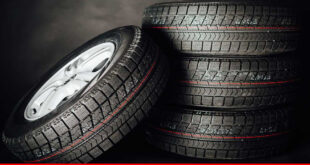In the absence of quality and price check mechanism the used cars traders are duping Pakistani consumers by offering them imported used cars with no warranty or spare parts availability while denying even the benefit of appreciation of Pakistani rupee this year, this was stated by Iqbal Shah, Chairman Pakistan Automobile Manufacturer Assembler Dealer Association (PAMADA).
These used vehicles prices are compared with new locally-made cars, which are superior in quality but have a tag “Made in Pakistan”, which unfortunately has not been promoted even by our own Government, Iqbal Shah said.
“There is no regulator to keep price and quality of used imported cars in check, while the much cheaper and superior quality “Made in Pakistan” vehicles, despite meeting all the quality standards in the country, are scrutinized for price and quality by many government organizations and by some of them even have no jurisdiction to do so.
It can be verified through a small survey of the market that used car dealers are fleecing the consumer by increasing prices of the used cars after every few months, and the government pays no attention to this injustice so the traders are free to exploit the consumer, he said.
The used car dealers not only hoodwink the customers on condition of cars but increase prices also quite frequently. For example, the average price of Prius ranged between Rs1.7m to 1.85m during December 2013 to February 2014 but it has increased to Rs2.1m to Rs2.45m in September/October 2014 whereas the US dollar was standing at 108 in December 2013 and it touched as low as 98 this year.
The average price of Mira during Dec-13 to Feb-14 was Rs800,000 to 900,000 but the price increased in past few months and it is now available in Rs1m to 1.1m even when there is no value addition.
Moreover, the price of Vitz during Dec-13 to Feb-14 was Rs1.2m to Rs1.27m but in Sept/Oct this year the price increased to Rs1.4m. The average price of Passo was ranging from Rs900,000 to 1.0m during the Dec-13 to Feb-14 but it increased to the average price of Rs1.2m in Sept/Oct 2014. Alto’s average price of Rs900,000 to Rs950,000 during Dec-13 to Feb-14 has now increased to Rs1m – Rs1.1m in Sept/Oct 2014.
Iqbal Shah said it is worth adding here that the above mentioned vehicles have more than 55% share in total used car imports throughout the year.
Even after increase of the duty rates on import of used cars only by 10%, government is still losing $1,950 to $3,781 on import of each used car. During FY 2013-14, government has lost more than US$68 million, which could have helped in narrowing down fiscal deficit.
Another anomaly in SRO-499 compels the OEMs to charge full 17% GST on their retail sales of hybrid vehicles from their customers whereas used car importers pay only half of it and enjoys high level of depreciation in duty at import stage as well, he said.
Besides, he added, the OEMs reduced vehicle prices in response to drastic decrease in US dollar that came down to 99 Pakistani rupees from Rs108 level in the first quarter of 2014. The OEMs reduced Rs10,000 on Cultus, Rs30,000 to 40,000 on Civic, and up to Rs75,000 on Corolla, but used car dealers/importers did not pass on this benefit of reduction in exchange rate to the customers even on stocked vehicle, Iqbal said.
Now the situation is that the government is not paying any attention on the violations the used car importers are involved in and the benefits in terms of duty relaxations they are enjoying. Used car import scheme, which was meant solely for facilitating non-resident citizens to import their personal cars to Pakistan, is misused by used car dealers. Due to loopholes in the policy, they can easily import cars without any verification by custom departments. In addition, more than 50,000 smuggled cars which were cleared after legislation passed in 2012-13 also grabbed massive market share. He added that fixed dollar duty for import of used vehicles ascertained in SRO-577 has been revised once in 9 years. “Fixed dollar duty on import of used vehicles is inclusive of custom duty, GST, and income tax, hence no price impact of any recent increase in GST or FED contrary to the case of new locally manufactured or imported vehicles by OEMs,” said the manufacturer.
The local auto industry feels that the government should take positive steps to safeguard major investments of OEMs. “We hope that the government would support the local auto industry by quickly finalizing the new auto policy for future growth of the industry,” he added.
 PAGE Blog Business Weekly Magazine
PAGE Blog Business Weekly Magazine

